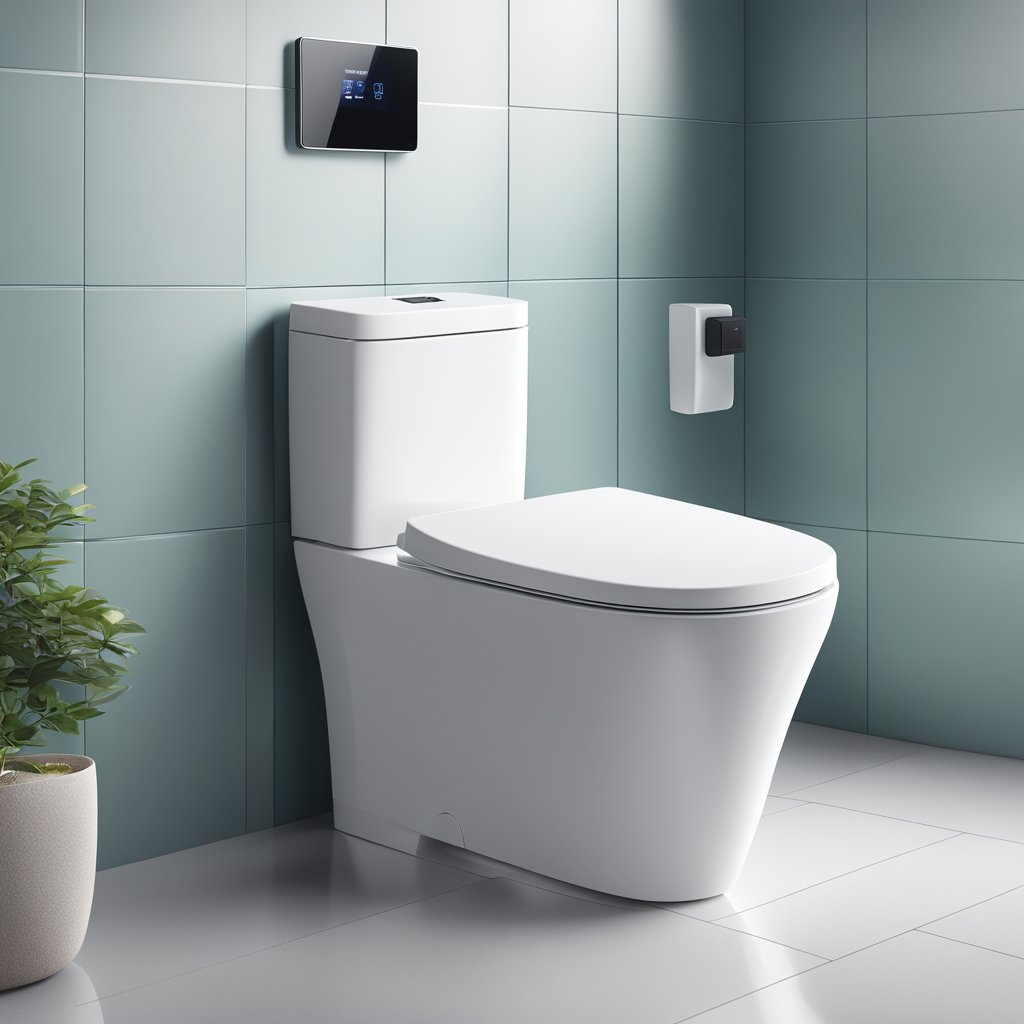 English
English
Jabra Sanitary is a sanitaryware supplier offering toilets, sinks, faucets, bathtubs, etc., at competitive prices. If you're a distributor, wholesaler, or project contractor, get a quote today!
 $23.9 Limited-time Offer
$23.9 Limited-time Offer Consignment Policy
Consignment Policy 20 Years of Experience
20 Years of Experience
Wall-hung toilets are designed to save space and provide a minimalist aesthetic, making them popular choices for compact bathrooms or contemporary interior designs.
While their sleek design and hidden tank system have aesthetic and hygienic benefits, homeowners and facilities managers should be aware of the common wall-hung toilet problems they might face.
In this article, let's discover how to troubleshoot wall-mounted toilet problems along with understanding wall-hung toilets pros and cons.
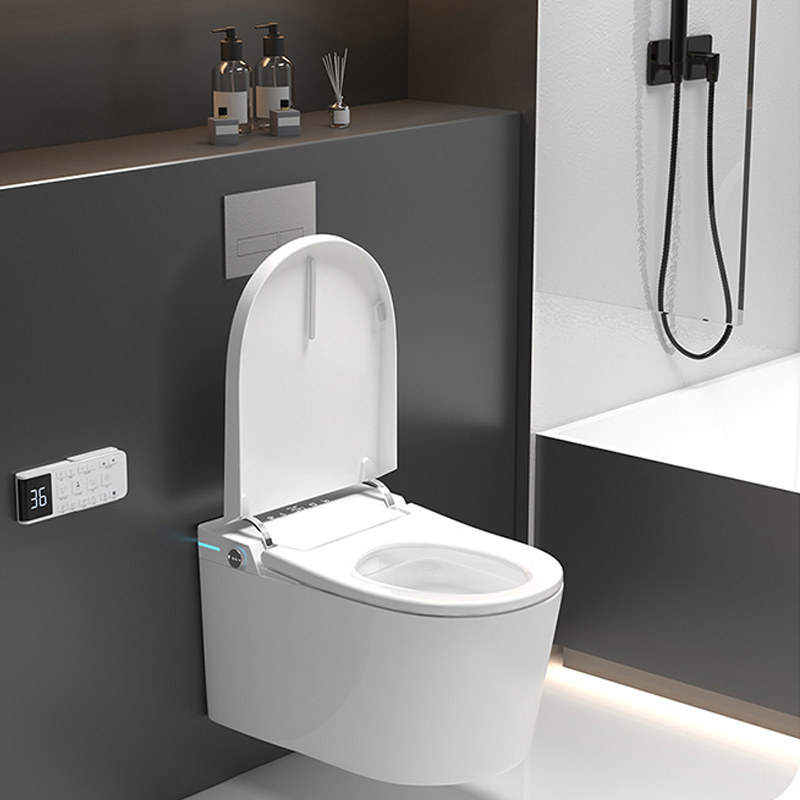
Table of Contents
What is a Wall-Hung Toilet?
Critical Components of a Wall-Hung Toilet
Understand Wall-Hung Toilets Problems
Effective Solutions for Wall-Mounted Toilet Problems
Maintenance Tips for Wall-Hung Toilets
When to Call a Professional for Wall-Hung Toilet Issues
Future of Wall-Hung Toilets: Trends and Innovations
Conclusion
Wall-hung toilets, often known as floating toilets or wall-mounted toilets, are a type of toilet that is secured directly to the wall, rather than resting on the floor.
Unlike traditional floor-mounted toilets, wall-hung models do not have a visible base or pedestal, creating a sleek and modern appearance.
In a wall-mounted toilet system, the toilet bowl and tank are mounted onto a concealed carrier frame installed within the wall.
This frame houses the water supply and drainage pipes, as well as the flushing mechanism. The toilet itself is then attached to the frame, creating a seamless and floating appearance against the wall.
These floating toilets have certain spacing benefits; for instance, they can save as much as 10 inches in bathroom space, making them ideal for smaller bathrooms.
To understand the potential wall-hung toilet problems, it's essential to be familiar with their critical components:
- Toilet Bowl and Tank
- Concealed Carrier Frame
- Water Supply and Drainage Pipes
- Flushing Mechanism
- Wall-Mounting Hardware
Each of these components plays a crucial role in the overall functionality and performance of the wall-hung toilet system. Next, let's discover the floating toilet pros and cons below.
Understand Wall-Hung Toilets Problems
Despite their sleek design and potential benefits, wall-hung toilets are not immune to various issues and challenges. Some common wall-mounted toilet problems that may arise with these toilets include:
Leaks: Wall-mount toilet leaking can occur at various points, such as the water supply connections, drainage pipes, or the toilet bowl itself.
According to Consumer Reports, the wall-hung toilet water tank, which is concealed behind the wall, could develop wall-hung toilet leaking that is not immediately visible, leading to potential water damage and costly repairs.
Flushing Issues: Weak or incomplete flushing can result from problems with the flushing mechanism, clogged pipes, or insufficient water pressure.
Mounting Instability: Improper installation or loosening of the wall-mounting hardware can cause the toilet to become unstable or even detach from the wall, posing safety risks.
Noise and Vibration: Certain wall-hung toilet models may produce excessive noise or vibrations during flushing, which can be disruptive and potentially indicate underlying issues.
Accessibility Challenges: While wall-hung toilets can be installed at accessible heights, their design may still pose challenges for individuals with specific mobility needs or disabilities.
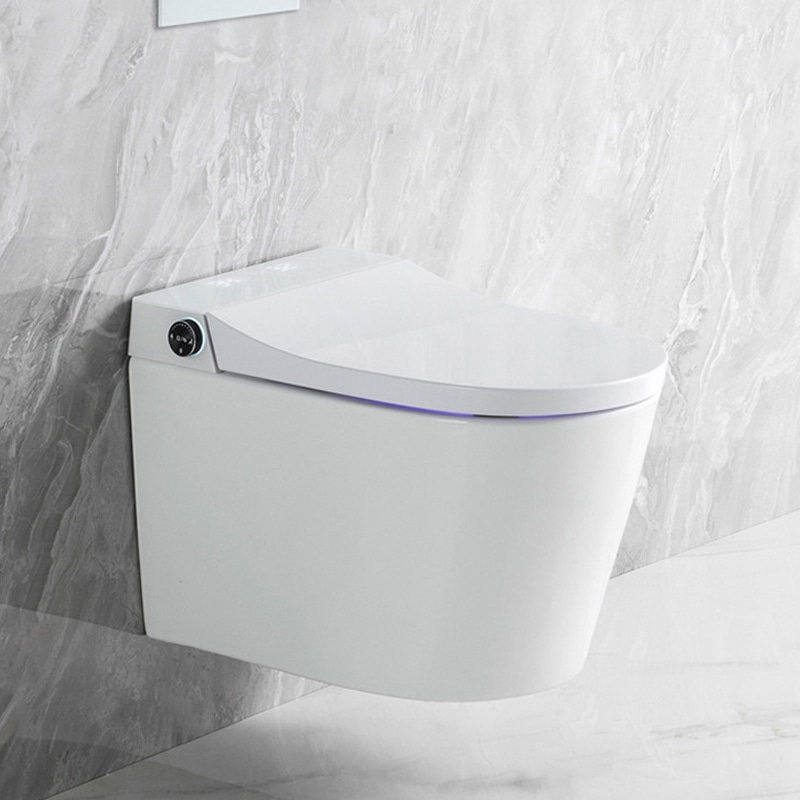
Difficulties in Maintenance: Due to the concealed nature of the tank and plumbing, repairs and maintenance can be more challenging compared to traditional toilets.
Access to the tank and flushing mechanisms typically requires the removal of a panel or wall section, which can make even simple fixes a more time-consuming and costly affair. Regular inspection is advised to prevent major malfunctions.
Space and Clearance Issues: The advantage of space-saving with wall-mounted toilets, especially in smaller bathrooms, can also present challenges. Ensuring adequate clearance for the bowl and the user is critical.
Toilet Haven's buyer guide points out that compliance with local building codes regarding the space around the toilet—both from the wall and to the sides—must be observed, which can dictate the feasibility of installation in cramped quarters. Additionally, the structural support within the wall must be sufficient to hold the weight of the bowl and user, potentially adding to installation complexity.
Effective Solutions for Wall-Mounted Toilet Problems
Addressing wall-mounted toilet problems often requires a combination of preventive measures, routine maintenance, and professional intervention. Here are some effective solutions to consider:
Leak Detection and Repair
- Regularly inspect the toilet for signs of leaks, such as water stains, moisture buildup, or musty odors.
- Tighten loose connections or replace worn gaskets and seals to prevent wall-mounted toilets from leaking when flushed.
- In case of significant wall-mounted toilet running water issues, seek professional assistance to identify and repair the source.
Flushing Optimization
- Found the wall-mounted toilet not flushing? Check and adjust the water supply valve to ensure adequate water pressure for proper flushing.
- Clear any obstructions or clogs in the drainage pipes using a plunger or auger.
- Consider replacing the flushing mechanism or upgrading to a more efficient model if flushing issues persist.
Mounting Stability
- Ensure the wall-mounting hardware is securely fastened and tightened according to the toilet manufacturer's instructions.
- Inspect the carrier frame and wall anchors for any signs of damage or loosening, and address any issues promptly.
- If the toilet feels unstable or has detached from the wall, seek professional help for a proper reinstallation.
Noise and Vibration Reduction
- Install noise-dampening materials or gaskets around the toilet components to absorb vibrations.
- Adjust the water supply valve to reduce excessive water pressure, which can contribute to noise and vibrations.
- Consider upgrading to a quieter or more advanced flushing system designed for wall-hung toilets.
Accessibility Enhancements
- Consult with accessibility experts or occupational therapists to identify potential modifications or adaptations to improve accessibility for individuals with specific needs.
- Install grab bars, raised toilet seats, or other assistive devices to enhance safety and comfort.
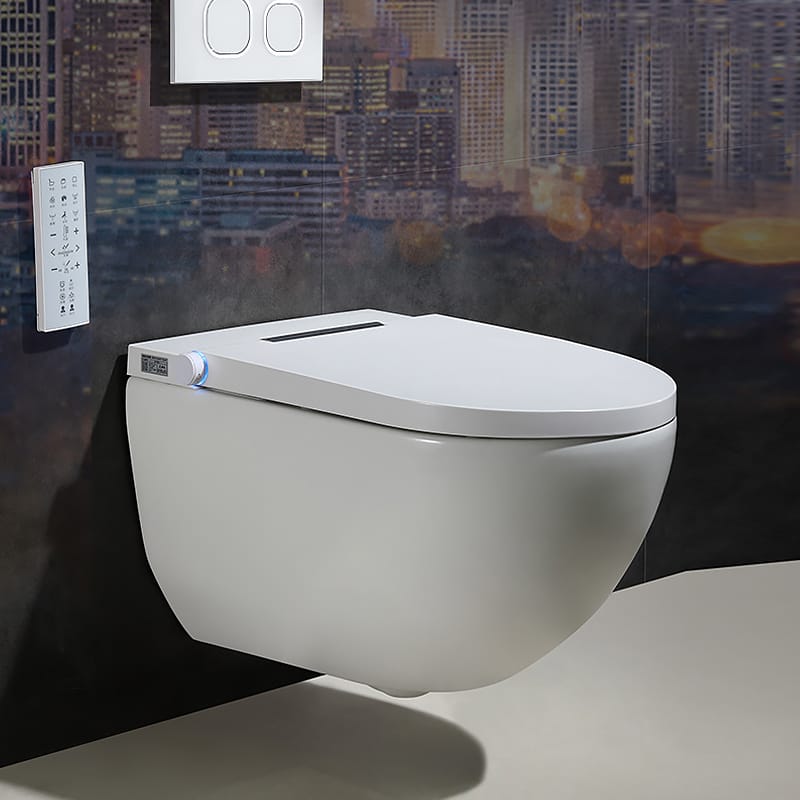
Maintenance Tips for Wall-Hung Toilets
Proper maintenance is crucial to ensuring wall-hung toilets' longevity and optimal performance. Here are some essential maintenance tips:
Regular Cleaning: Develop a consistent cleaning routine to prevent the buildup of limescale, mineral deposits, and other contaminants that can clog the toilet or affect its performance.
Water Supply Inspection: Periodically check the water supply lines and connections for any signs of leaks, corrosion, or damage, and address any issues promptly.
Flushing Mechanism Maintenance: Follow the manufacturer's recommendations for cleaning and lubricating the flushing mechanism to ensure smooth operation and prevent premature wear.
Carrier Frame Inspection: For a wall-mounted commode, assessing the support framework within the wall and ensuring it meets the required weight capacity is vital to prevent the toilet from detaching or causing damage.
Periodically inspect the concealed carrier frame for any signs of damage, rust, or loosening, and address any issues to maintain the stability and integrity of the toilet installation.
Professional Servicing: Consider scheduling regular professional servicing and inspections to identify and address potential issues before they become major problems.
| Issue | Preventative Measure | Solution |
|---|---|---|
| Mounting Instability | Check bolts annually | Reinstall or tighten as needed |
| Leakage | Regular seal inspection and maintenance | Replace seals or gaskets |
| Sensor Malfunctions | Clean sensor, replace batteries | Reset the system or replace faulty parts |
| Clogging | Regular flushing with ample water | Use a plunger or plumber's snake |
| Nozzle Blockage | Routine cleaning, descaling | Clean or replace nozzle |
For more detailed guidance on specific issues, individuals may refer to resources such as Plumbertip's advice on wall-mounted toilets
When to Call a Professional for Wall-Hung Toilet Issues
While some minor issues can be addressed through routine maintenance and DIY solutions, certain wall-mounted toilet problems may require the expertise of a professional plumber or contractor.
Here are some situations where it's advisable to seek professional assistance:
Major Leaks or Water Damage: If you notice significant water leaks or water damage around the toilet area, it's crucial to seek professional help to identify and repair the source and address any potential structural or mold issues.
Flushing Mechanism Failure: If the flushing mechanism fails to operate properly despite troubleshooting efforts, a professional may be needed to diagnose and repair or replace the faulty components.
Mounting Instability or Detachment: If the toilet feels unstable or has detached from the wall, attempting to reinstall it yourself can be risky and may lead to further damage or safety hazards.
Seek professional assistance for proper reinstallation.
Extensive Renovations or Remodeling: If you're planning a bathroom renovation or remodeling project that involves relocating or replacing the wall-hung toilet, it's advisable to hire a professional contractor to ensure proper installation and compliance with local building codes.
Accessibility Modifications: If you require accessibility modifications or adaptations to the wall-hung toilet installation, consulting with a professional who specializes in accessible design can ensure that the modifications are implemented safely and effectively.
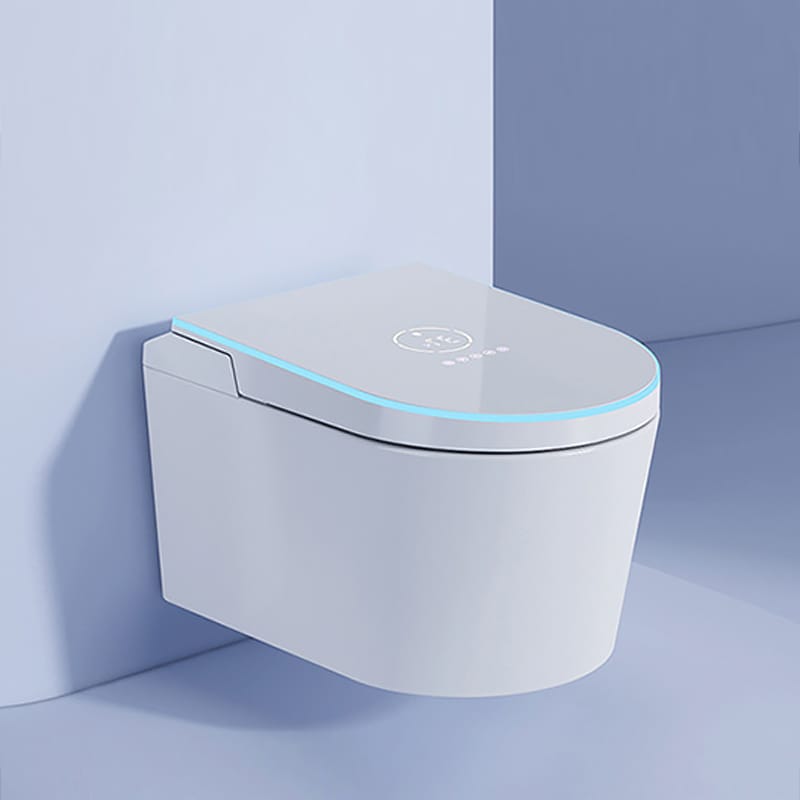
Future of Wall-Hung Toilets: Trends and Innovations
As with many aspects of bathroom design and technology, wall-hung toilets are continuously evolving to meet changing consumer demands and incorporate innovative features.
Here are some trends and innovations shaping the future of wall-mounted toilets:
Smart Toilet Technology: The integration of smart technology into wall-hung toilets is gaining popularity, with features such as automatic flushing, self-cleaning functions, and remote control capabilities.
Water-Saving Designs: Manufacturers are focusing on developing water-efficient wall-hung toilet models that conserve water without compromising performance, aligning with eco-friendly and sustainable practices.
Customizable Designs: Consumers are seeking more personalized and customizable options for wall-hung toilets, including varied shapes, sizes, and finishes to complement their unique bathroom aesthetics.
Improved Accessibility: Advancements in accessible design are leading to wall-hung toilet models that cater to individuals with mobility challenges or disabilities, incorporating features like adjustable heights and integrated safety features.
Enhanced Hygiene and Cleanliness: Toilet manufacturers are exploring new materials and coatings that resist stains, bacteria, and odors, promoting improved toilet hygiene and easier maintenance for wall-hung toilets.
As these trends and innovations continue to evolve, wall-hung toilets are poised to become even more functional, efficient, and aesthetically pleasing, meeting the diverse needs of modern bathroom designs.
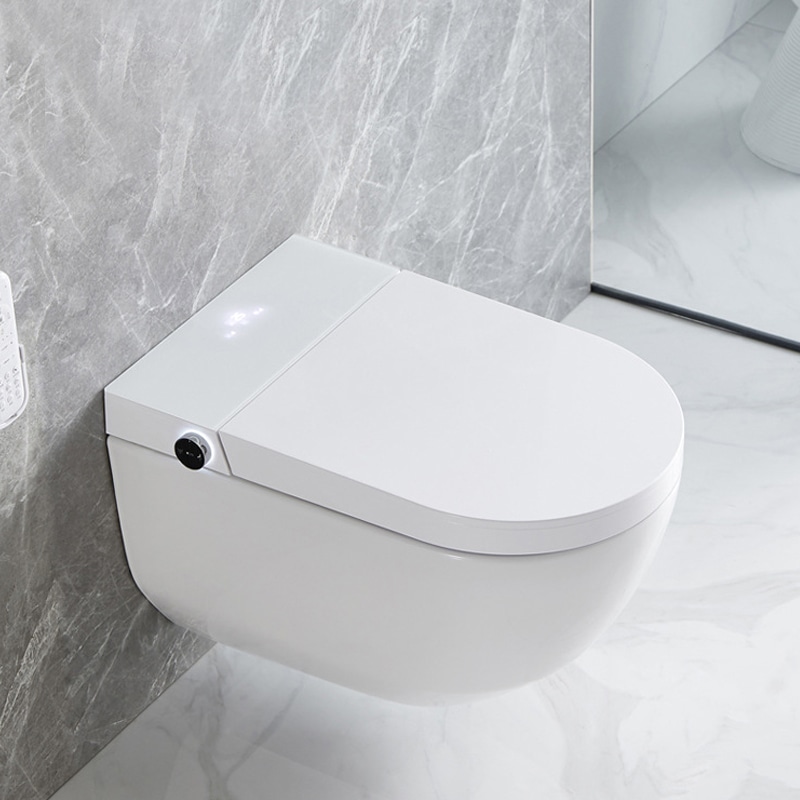
Conclusion
Wall-mounted toilets offer a sleek and space-saving solution for contemporary bathrooms, but they also come with their own set of challenges and potential issues.
By understanding the wall-hung toilets' problems, solutions, and preventive maintenance, as well as wall-mounted toilets' pros and cons, homeowners can enjoy the benefits of these stylish fixtures while minimizing potential drawbacks.
Remember, proper installation, regular maintenance, and prompt attention to any issues are key to ensuring the longevity and optimal performance of your wall-mounted toilet.
Jabra Sanitary has many experiences with toilets, no matter wall-hung toilets or floor-standing toilets; if you have any problems, contact us for the best solutions.








